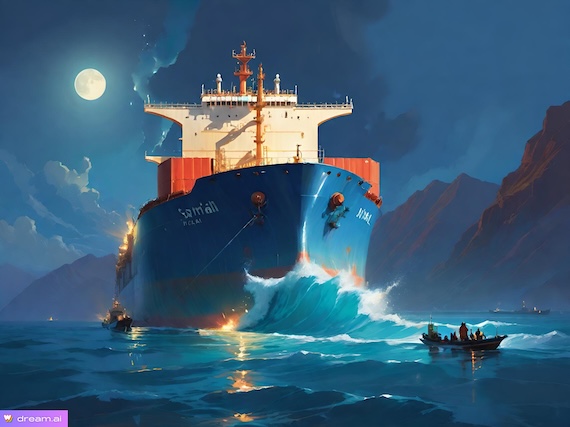Ann Arbor (Informed Comment) – The E3 — France, Britain and Germany — successfully led a bid at the UN Security Council Friday to reimpose UNSC economic sanctions on Iran, which had been in place 2007-2015 but were lifted because of the 2015 Iran nuclear deal. That deal is now dead as a door nail.
The move caused the anemic Iranian currency, the rial, to fall further on the black market, to 1.12 million to the dollar. The problem with these US and UN sanctions is that it is unclear what they are supposed to accomplish. Is it just a bid to keep Iran weak forever, what I call “negative imperialism”? Is it hoped that Iranians will feel the economic pain so much that they will rise up and overthrow the ayatollahs? But if you deprive the middle classes of resources, how will they accomplish that? Are they intended to make Iran give up its enrichment program? The first of these goals is foolish, and the other two show no evidence of being practical.
These new sanctions no doubt further constrain the Iranian economy, but despite the UNSC imprimatur they are destined to be widely ignored. China accounts for about a third of Iranian trade, and that is likely to continue. China has so far found ways around US sanctions on Iran, accepting wildcat shipments of oil at Qingdao south of Shanghai, bought by domestic Chinese refineries or “teapots” for Chinese use, avoiding the use of dollars or international banking networks. Even so, the US has found ways of imposing Treasury Department sanctions even on some of these companies, forcing Iran to discount its oil by as much as $6 per barrel to recompense the buyers. Iran secretly sends its tankers to Malaysia, where the tankers are rebranded as Malaysian and reported as such by China.
That trade will likely find a way to continue, though a dark cloud for Iran has arisen on the horizon in the form of the burgeoning Chinese EV industry, which is beginning to cut into Chinese petroleum imports and over the next decade could substantially reduce them. Still, even non-oil bilateral trade between Iran and China amounted to $34 billion last year.
Iran’s annual bilateral trade with Europe, which will take a hit, was less than $5 billion and it fell by nearly a fifth from 2023.
Turkiye is another big trading partner of Iran (accounting for 9%), and the Turkish government will likely defy the restoration of UNSC sanctions, as well. Iraq has no choice but to do substantial trade with Iran, even buying some electricity from Tehran. For both Turkiye and and Iraq, a lot of Iranian trade is conducted via the black market. That way of proceeding imposes costs on Iran, but it is substantially better than nothing.
India and Brazil are also important markets for non-oil Iranian products and will continue to be. Iran is doing about $2 billion a year in non-oil trade with India, as New Delhi has backed off purchasing Iranian petroleum under Washington’s threats. Now, though, that Trump has put heavy sanctions on India for importing Russian oil, India may decide it has nothing to lose from renewing Iranian purchases in the short term.
Iran does a lot of business with Brazil through intermediaries, exporting petrochemicals, fertilizer, even pistachios. I saw one estimate of $8 billion bilateral trade annually but that seems high to me. The total is anyway in the billions. With Trump’s 50% tariffs on Brazil, Lula could well replace some imports from the US with Iranian ones, which is kind of poetic justice.

Iran only made the 2015 nuclear deal, mothballing 80% of its civilian enrichment program, in hopes of receiving sanctions relief. It never received that relief, because the US Republican Party would not legislate an end to US sanctions, which include third-party sanctions. So although I think France, Britain and German sincerely signed on to the deal, their corporations were prevented from doing business in Iran by the US Treasury Department. Iran nevertheless faithfully adhered to its terms, as certified by the International Atomic Energy Agency. Then in May 2018 Trump tore up the Joint Plan of Collective Action and imposed the most severe sanctions ever applied by one county to another in peace time. Iran went on abiding by the JCPOA for another year, but then decided it had been released from its terms de facto, given that it received no sanctions relief. No quo, no quid.
The E3 is being completely hypocritical. Renault, TotalEnergies, BMW etc. never invested in Iran as they had promised to do. Iran got taken for a ride, giving up most of its enrichment (which was intended to keep it from being attacked) and receiving nothing in return.
And now Iran is one of the most sanctioned countries in the world and its civilian nuclear enrichment program has been bombed by Israel and the United States. Meanwhile, Israel, which has an arsenal of several hundred nuclear warheads and routinely threatens neighbors with them, has never been sanctioned for its nuclear enrichment but instead has been given all sorts of aid and market access by the US and Europe.


 © 2026 All Rights Reserved
© 2026 All Rights Reserved